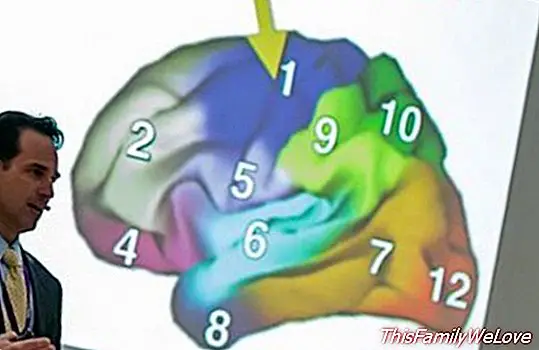Music activates the infant brain, according to neuroscience
Mathematical skills, cognitive development, confidence, language skills, memory, attention, autonomy, creativity, emotional flexibility and empathy converge in people who live with musical experiences since childhood.
The music is the pending subject within the Spanish educational system, is one of the conclusions that have been put in common between the experts in education and science on music, language and brain development after the conference offered by Dr. John R. Iversen during the VII edition of the Language Education Forum organized by Trinity College London.
"There is already scientific proof that lMusic effectively influences the development of certain skills in children, and we hope that more and more schools will bet on its implementation with large music programs, not only to improve learning but also to encourage the emotional growth of the youngest, "said Iversen.
Main benefits that music generates in the brain
Some of the main ones benefits that music generates in the brain, especially that of children, are the release of dopamine in the brain, the creation of stimuli that ignite the subcortical brain circuit of the limbic system, the activation of emotional stimuli, the improvement of cognitive functioning and learning, as well as the integration sensory, the development of individual, social and cooperative skills, the increase of creativity and self-esteem, among others.
"The music power cognitive skills and develops the brains of children from their earliest childhood, "says John R. Iversen, neuroscientist at UCSD, after his research with the study Symphony, which has followed the evolution of 200 primary school children for five years, deeply measuring brain structure and emerging cognitive abilities.
Music influences the growth curves of the brain

The objective of the project has been to develop the first "growth curves" for the brain, that could ultimately support personalized education from individual brain development. Neuroscientist John R. Iversen foresees a future in which a person's education is based on brain development to help each person reach their maximum individual potential.
Through this technology, the results of the study Symphony confirm that music 'plays', activates and deactivates the brain. It happens, for example, when music evokes memories. This can show exactly what areas of the brain are stimulated by music. "We have used music as a tool to help understand and influence the brain," clarifies John R. Iversen.
The scientific data of the study Symphony they also examine the correlations between music students and their improvement in the perception of rhythm and in language tests. Thanks to the Symphony project he has been able to deepen more about how humans perceive the world, how they create a rich and detailed vision of the world from certain sensory stimuli and the impact of musical training on brain and behavioral development.
According to John R. Iversen, in the future children will go to the doctor and receive their height and weight measurements and in their growth chart will also include measures of brain growth. "Neurological mapping technologies can already show us measurements of average growth in certain areas of the brain, so children will see how certain areas of their brain development compare to their average age, and which areas need more stimulation," says Iversen. .
Marisol Nuevo Espin




